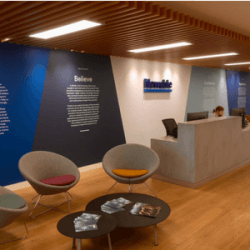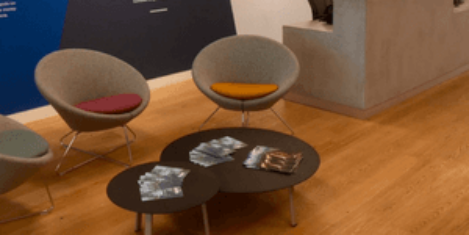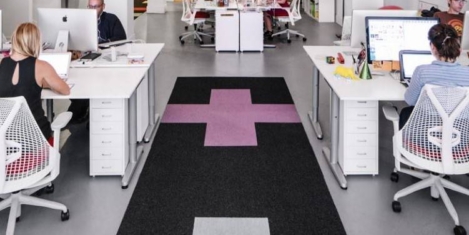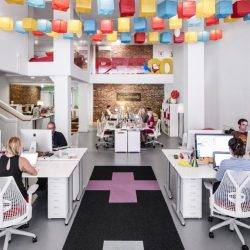To provide the best experiences, we use technologies like cookies to store and/or access device information. Consenting to these technologies will allow us to process data such as browsing behaviour or unique IDs on this site. Not consenting or withdrawing consent, may adversely affect certain features and functions.
The technical storage or access is strictly necessary for the legitimate purpose of enabling the use of a specific service explicitly requested by the subscriber or user, or for the sole purpose of carrying out the transmission of a communication over an electronic communications network.
The technical storage or access is necessary for the legitimate purpose of storing preferences that are not requested by the subscriber or user.
The technical storage or access that is used exclusively for statistical purposes.
The technical storage or access that is used exclusively for anonymous statistical purposes. Without a subpoena, voluntary compliance on the part of your Internet Service Provider, or additional records from a third party, information stored or retrieved for this purpose alone cannot usually be used to identify you.
The technical storage or access is required to create user profiles to send advertising, or to track the user on a website or across several websites for similar marketing purposes.
 Now in their 18th and final year before the Institute changes its name, the BIFM Awards set out to ‘celebrate the profession’s finest, honouring those whose outstanding work has driven innovation and achieved exceptional results in the organisations where they work, benchmarking excellence and inspiring others’. Thirteen winners were announced from 46 finalists at a ceremony held last night in London. The occasion also celebrated the work of a further nine finalists whose initiatives were highly commended by the judges.
Now in their 18th and final year before the Institute changes its name, the BIFM Awards set out to ‘celebrate the profession’s finest, honouring those whose outstanding work has driven innovation and achieved exceptional results in the organisations where they work, benchmarking excellence and inspiring others’. Thirteen winners were announced from 46 finalists at a ceremony held last night in London. The occasion also celebrated the work of a further nine finalists whose initiatives were highly commended by the judges.














 In spite of all the evidence and their own experiences, over half (55 percent) of office workers believe access to the latest workplace technology would make them more productive; 43 percent said this would make them feel more valued, while 38 percent said it would motivate them to work harder. This is according to research for the report, The Hidden Value of Workplace Technology, conducted on behalf of Econocom by survey consultant Censuswide. The research found that workplace tech is important not just for companies looking to retain existing staff, but also to recruit new members.
In spite of all the evidence and their own experiences, over half (55 percent) of office workers believe access to the latest workplace technology would make them more productive; 43 percent said this would make them feel more valued, while 38 percent said it would motivate them to work harder. This is according to research for the report, The Hidden Value of Workplace Technology, conducted on behalf of Econocom by survey consultant Censuswide. The research found that workplace tech is important not just for companies looking to retain existing staff, but also to recruit new members. 


 The majority of employees (77 percent) agree that people should take proactive steps to manage their mental health a new survey has revealed. Of those surveyed, the vast majority felt that there is increased awareness about mental health (87 percent) and that people are more willing to talk openly about mental health issues than they were a few years ago (82 percent). The impact of high-profile people speaking out about their own mental health challenges was believed to be the biggest influencing factor, cited by more than half (53 percent) of respondents.
The majority of employees (77 percent) agree that people should take proactive steps to manage their mental health a new survey has revealed. Of those surveyed, the vast majority felt that there is increased awareness about mental health (87 percent) and that people are more willing to talk openly about mental health issues than they were a few years ago (82 percent). The impact of high-profile people speaking out about their own mental health challenges was believed to be the biggest influencing factor, cited by more than half (53 percent) of respondents. 
 More than half of CEOs (53 percent) admit they can’t find candidates with the necessary skills to help them navigate an increasingly digitalised business landscape a new survey from Robert Half has claimed. These include data analysis and digital skills, as well as softer skills such as resilience, adaptability to change and critical thinking. This means that nearly five million UK SMEs, the equivalent to four out of every five (82 percent) small and medium-sized companies, are struggling to attract the skills they need. As a result, many are being forced to offer salary packages higher than originally expected to recruit the right talent.
More than half of CEOs (53 percent) admit they can’t find candidates with the necessary skills to help them navigate an increasingly digitalised business landscape a new survey from Robert Half has claimed. These include data analysis and digital skills, as well as softer skills such as resilience, adaptability to change and critical thinking. This means that nearly five million UK SMEs, the equivalent to four out of every five (82 percent) small and medium-sized companies, are struggling to attract the skills they need. As a result, many are being forced to offer salary packages higher than originally expected to recruit the right talent. 











October 16, 2018
Law firms are finally embracing the agile workplace
by Simon Pole • Comment, Workplace design
More →